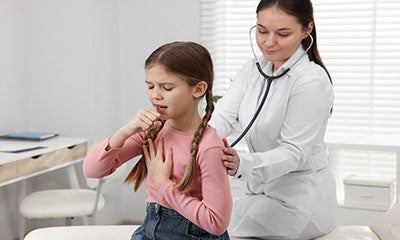Protecting Your Child from Illnesses During the Respiratory Season
November 3, 2025
Categories: News
Birmingham, Ala. (Nov. 1, 2025) —There are some things we can count on in the fall: the turning of the leaves, football season, and respiratory season. This year’s respiratory season is underway, and health experts are encouraging parents to consider ways to keep their children healthy.
“Right now, we are having low activity, which is good,” said Delphene Noland, Director of Infection Prevention and Control at Children’s of Alabama.
According to the Centers for Disease Control and Prevention (CDC), 231 children in the United States died during the 2024-25 flu season, the highest number reported since the 2009-2010 H1N1 pandemic and the highest for a non-pandemic flu season.
Noland says multiple respiratory illnesses could affect children, including influenza and respiratory syncytial virus (RSV). She says most of them have similar symptoms, but there are some signs parents need to pay close attention to if their child is ill.
“Parents need to check their children if they are sick to see if they are getting better or worse,” said Noland. “Also, check to see if they have a fever that is not controlled by antipyretics. Also, look for what is different when it comes to their child.”
An antipyretic is a medication or substance that reduces a fever. Parents should contact their pediatrician if their child experiences breathing difficulties or changes in skin color, decreased urine output, or any fever in infants under 3 months.
Noland stresses prevention through good hygiene and vaccinations.
“Hand hygiene is the number one thing that we can do,” said Noland. “Keep your hands clean and wash them. Also, when others are sick, keep your kids away or keep them out of school so they are not infecting other children.”
Noland also recommends families stay up to date on vaccinations, including annual flu shots and available RSV immunizations.
“We do know that vaccinations work. We know that flu shots work,” said Noland. “We know that the RSV vaccine is very effective. If you have questions, I will say talk to your pediatrician, but we do know that vaccination and regular vaccinations, especially for our smaller kids, our school-aged children, are very important.”
The official respiratory season runs from October through late March.


















